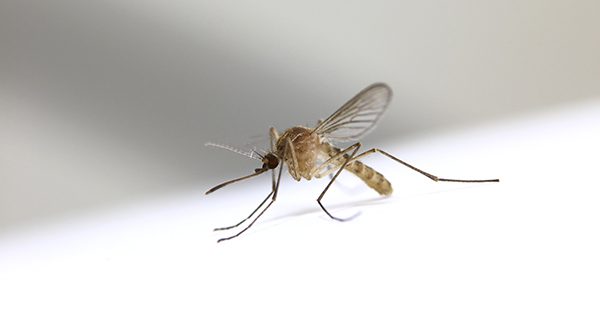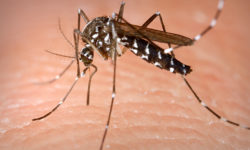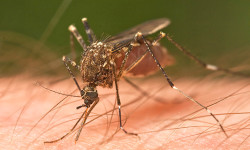[ccfic caption-text format="plaintext"]
By Stephen Press
Hometown Weekly Staff
Massachusetts Department of Public Health officials have announced that mosquitoes trapped in Dover and Wellesley have tested positive for West Nile virus (WNV); this is in addition to several positive-testing mosquitoes located in Newton, which borders Hometown Weekly communities Wellesley and Needham, on July 24.
WNV is a viral infection spread by mosquitoes. While the virus produces no symptoms in around eight out of every 10 individuals infected, it produces fever and flu-like symptoms (including headache, body ache, nausea, vomiting, and sometimes swollen lymph glands and skin rashes) in about 20 percent of cases. In less than one percent of cases, the diseases causes severe symptoms revolving around the central nervous system, including encephalitis and meningitis; around ten percent of these severe cases are fatal.
“Our messaging to residents has always remained the same,” explained Wellesley Director of Public Health Leonard Izzo. “WNV is in the area and has been for several years.”
Protecting oneself from WNV revolves around mosquito prevention, as the disease is most typically transmitted through mosquito bites. As such, the Massachusetts Department of Public Health, including the respective boards of health in Hometown Weekly’s communities, has suggested the following steps:
• As mosquitoes are most active during dawn and dusk, schedule outdoor activities to avoid such hours.
• Wear long pants, long sleeves, and socks whenever possible.
• Use an insect repellent with DEET, permethrin, picaridin, IR3535, or oil of lemon eucalyptus according to specific product instructions.
• Make sure window screens are free of breaches and holes.
Public Health Director Izzo also pointed out that mosquitoes can only breed in standing water, making its removal crucial. “For mosquito breeding, it’s important to remove standing water - i.e. buckets and flower pots - from your property, and to treat larger bodies of water with a larvicide product,” he said. “The town contracts with the East Middlesex Mosquito Control Project, who provides larvicide treatment to our wetlands in town, some catch basin treatment, and mosquito trapping and monitoring. The town of Wellesley’s DPW’s Park Division helps treat all our catch basins throughout town with larvicide to eliminate the primary breeding source of culex pipiens (which is the main WNV carrying mosquito).”
For further information on WNV, visit https://www.mass.gov/mosquito-borne-diseases.























